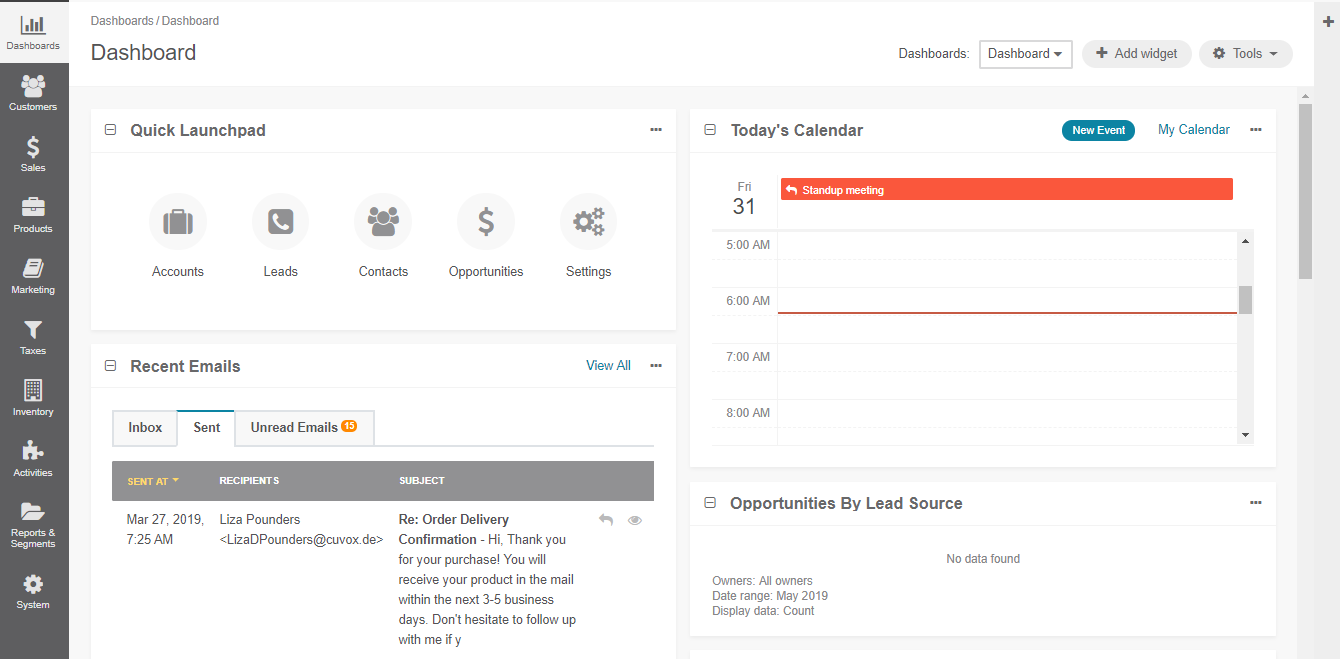Important
You are browsing upcoming documentation for version 7.0 of OroCommerce, scheduled for release in 2026. Read the documentation for the latest LTS version to get up-to-date information.
See our Release Process documentation for more information on the currently supported and upcoming releases.
Dashboard Features in the Back-Office
Dashboard features are all built to give B2B sellers the ability to quickly and easily obtain the relevant data needed to assess business performance.
Dashboards are typically the first thing that sales managers see when they log in. It includes dozens of different data wizards that managers can choose, allowing them to analyze nearly any aspect of their business. When a specific data wizard is not available out-of-the-box, it can easily be created and added to the dashboard. The dashboard is completely customizable and flexible to fit any business need.
Each sales rep, manager, and employee can create and manage their own custom dashboard by adding relevant widgets, allowing them to track the data that is most relevant to them (i.e., revenues, lost opportunities, abandoned carts, and more).

By default, each dashboard consists of a set of widgets apart from custom scenarios when you want to use a third-party service to build dashboards. In this case, developers can add custom dashboard types. If the system have more than one dashboard type, new dashboards can be created with the given types. For more information, see Add a New Dashboard Type in the developer guide.
Hint
If you run the Oro Marketplace application, a seller dashboard will be automatically added to each seller organization when a new seller is created through a seller request.
Click on the links below to learn how to work with dashboards and their widgets.